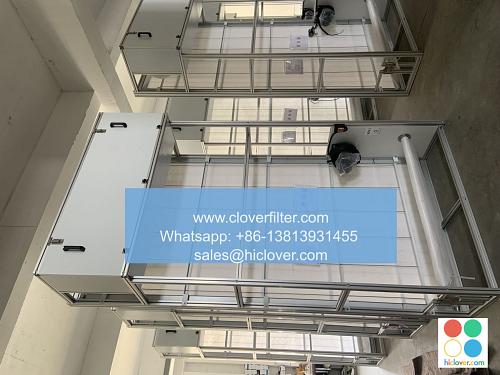Air Filter Shipping and the Need for Certificates of Compliance

The shipping of air filters is a critical process that requires attention to detail, particularly when it comes to ensuring compliance with regulatory standards.
Air Filter Manufacturers
and
Suppliers
must obtain Certificates of Compliance to guarantee that their products meet the required Quality and Safety Standards for use in various application areas, including
Industrial
,
Commercial
, and
Residential
settings.
The Importance of Certificates of Compliance
Certificates of Compliance are essential documents that verify that air filters have been manufactured and tested in accordance with established standards, such as those set by the
American Society of Heating, Refrigerating, and Air-Conditioning Engineers (ASHRAE)
and the
International Organization for Standardization (ISO)
. These certificates provide assurance that the air filters meet the required Air Quality Standards, Efficiency Ratings, and Safety Requirements for their intended use.
Application Areas for Air Filters
Air filters are used in various application areas, including:
*
Industrial Applications
: Air filters are used in industrial settings to remove Particulate Matter, Gases, and Vapors from the air, ensuring a Clean and Safe Working Environment for employees.
*
Commercial Applications
: Air filters are used in commercial buildings, such as offices, schools, and hospitals, to maintain Good Indoor Air Quality and prevent the spread of Airborne Diseases.
*
Residential Applications
: Air filters are used in residential settings to remove Allergens,!coming soon< Bacteria, and Viruses from the air, ensuring a Healthy and Comfortable Living Environment for occupants.
The Consequences of Non-Compliance
Failure to obtain Certificates of Compliance can result in severe consequences, including:
*
Product Liability
: Manufacturers and suppliers may be held liable for damages or injuries caused by non-compliant air filters.
*
Regulatory Penalties
: Non-compliant companies may face fines, penalties, and even Product Recall.
*
Reputational Damage
: Companies that fail to comply with regulatory standards may suffer damage to their reputation and Loss of Customer Trust.
Conclusion
In conclusion, the shipping of air filters requires careful attention to compliance with regulatory standards.
Air Filter Manufacturers
and
Suppliers
must obtain Certificates of Compliance to ensure that their products meet the required Quality and Safety Standards for use in various application areas. By prioritizing compliance, companies can avoid the consequences of non-compliance and maintain a Competitive Advantage in the market. It seems like you forgot to include the prompt. Please go ahead and provide the prompt or question you’d like help with!

